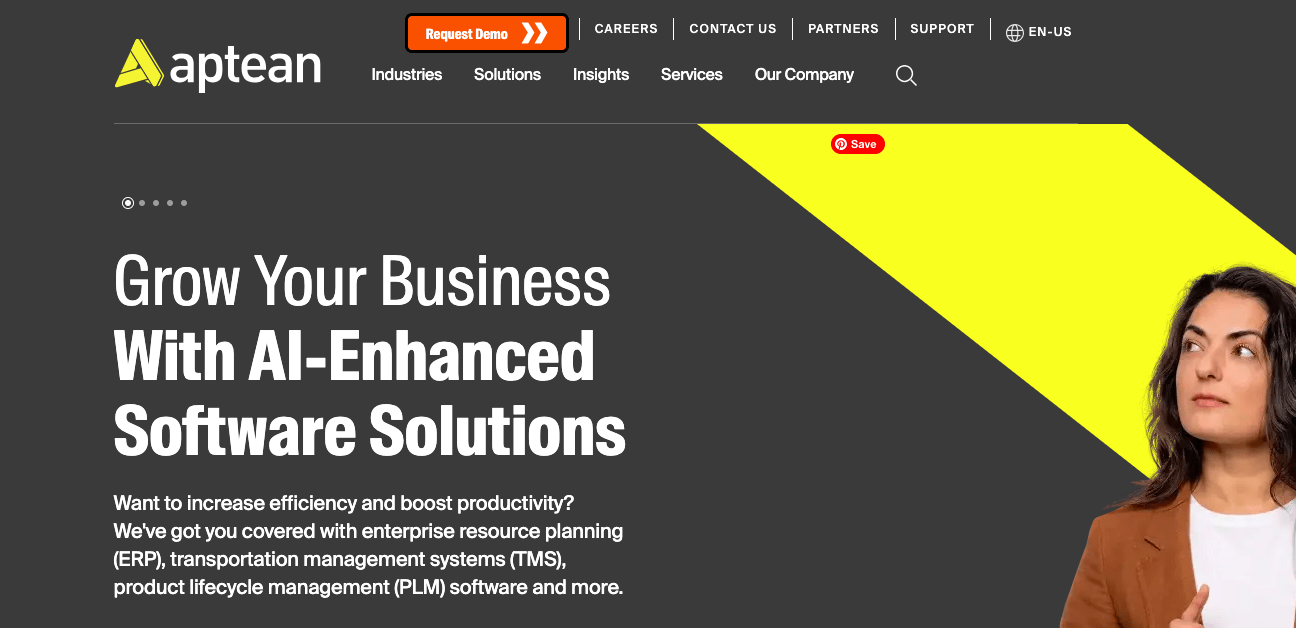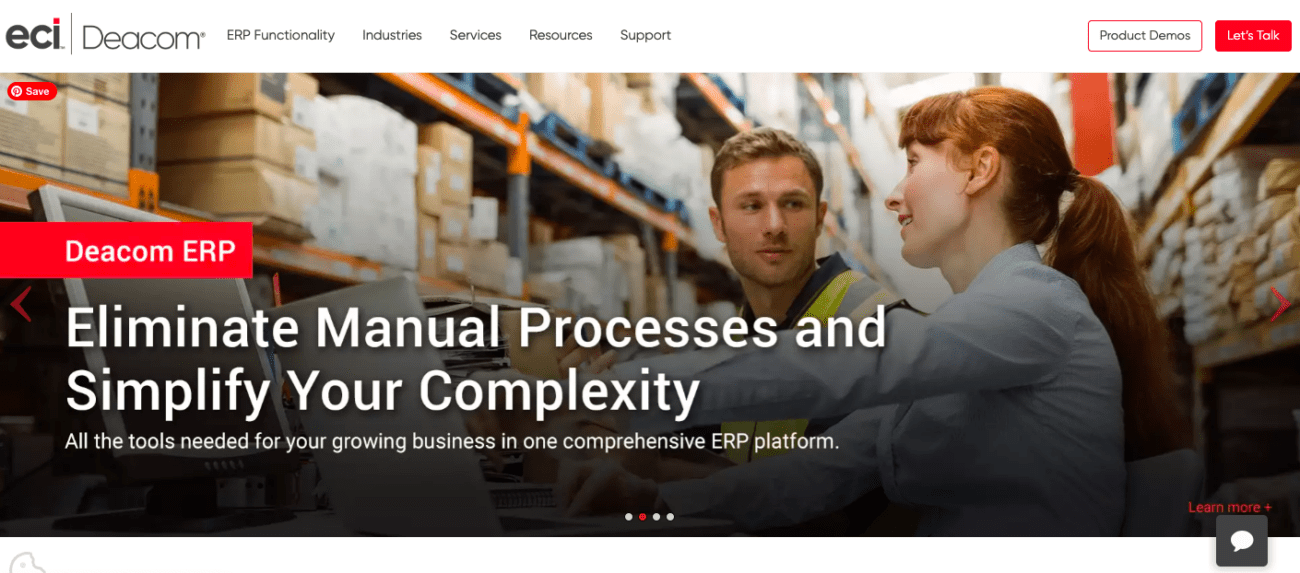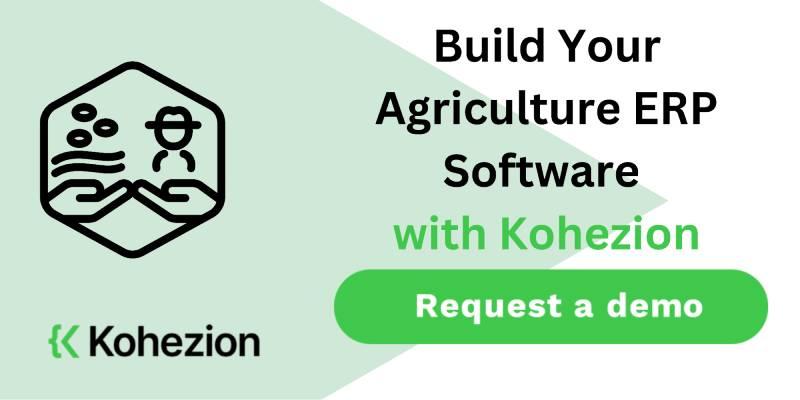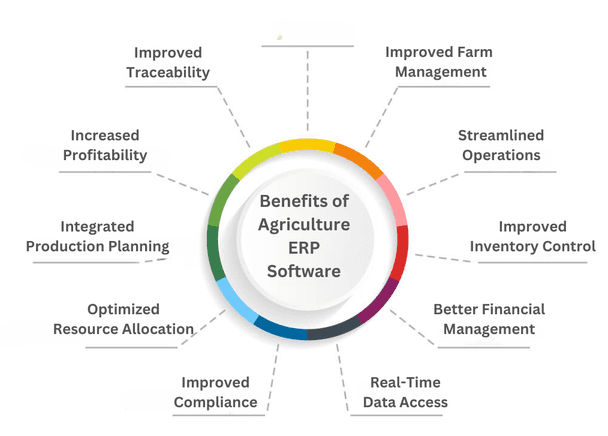The world will have nearly 10 billion people by 2050, which means food production is more critical than ever. This highlights the need for better farming methods, and agriculture ERP software is key to this effort. It brings together tasks like inventory, operations, sales, and finance into one place, helping farmers make better decisions and work more efficiently. This article will show you the best ERP software for farming in 2024.
What is Agriculture ERP Software
Agriculture ERP software integrates data from different farming tasks. It covers planning, buying, tracking stock, and selling. ERP systems also automate many tasks, making them more efficient and accurate.
ERP software offers a single place for all data. It breaks down barriers, giving everyone the latest info. The easy-to-use interface makes hard tasks simpler, helping you manage better. With these tools, making smart choices becomes easier, increasing your farm's success.
Why is Agriculture ERP Software Important
Agriculture ERP combines inventory, finance, and farm management tasks to help farmers and agriculture businesses manage operations efficiently. This makes processes smoother and increases productivity.
One key benefit is real-time data access, which helps you make quick decisions based on current market needs.
ERP software also makes following rules easier. It automates paperwork and keeps you in line with regulations, letting you focus more on what makes your farm profitable and grow.
Benefits of Agriculture ERP Software
Agriculture ERP software offers many tools to change farm operations. These solutions bring big benefits, making farm management more efficient. They also help optimize various processes in agriculture.
Improved Farm Management Efficiency
An ERP system lets you smoothly combine different operations, improving communication among departments and leading to more efficient farm management.
You can monitor fieldwork, manage workers, and better plan schedules, which makes things run smoothly.
Streamlined Supply Chain Operations
ERP solutions for agriculture improve supply chain efficiency. They reduce delays and improve production and market coordination, which means fresh products get to the market fast and efficiently, reducing the chance of losses.
Improved Inventory Control
ERP software helps with real-time stock tracking. This lets you avoid waste and keep the right amount of stock. It helps you make smart buying choices, leading to better resource management.
Better Financial Management and Reporting
ERP software has great financial tools. It helps with budgeting and reporting accurately. You get clear insights into income and expenses, which helps you make decisions that increase profits and keep finances healthy.
Real-Time Data Access and Analysis
With the latest information at your fingertips, you can adapt quickly to changes, increasing your ability to meet market demands and tackle challenges.
Simplified Compliance With Regulatory Standards
Dealing with agricultural rules can be tough. An ERP system for agriculture makes it easier to keep track of compliance. It helps you stay updated with local, state, and federal laws. This reduces the need to keep up with regulations.
Optimized Resource Allocation
Optimizing how you use labor, equipment, and materials is key. ERP systems help you see what your operations need and can do. This lets you use resources better, reducing downtime and increasing productivity.
Integrated Production Planning
ERP systems help plan production better. They ensure that different parts of production work together well, leading to smoother operations and helping you keep up with crop cycles.
Increased Profitability
ERP solutions for agriculture help find ways to cut costs. They also guide you in making data-based choices, improving your profits.
Improved Traceability and Food Safety
ERP systems let you follow products from the field to the table. This makes the supply chain clear and builds trust with consumers. It also helps your reputation in the market.
Top 10 Agriculture ERP Software Solutions
Here are the top 10 agriculture ERP software solutions for 2024 that can help streamline farm management and improve efficiency.
1. Kohezion

Kohezion is a highly customizable and user-friendly ERP platform designed for agricultural businesses. It allows users to build tailored solutions to manage farm operations, track inventory, and ensure compliance with industry regulations. Kohezion’s flexibility makes it an excellent choice for farms of various sizes looking for a scalable ERP system.
Top 5 Features:
- Customizable workflows and dashboards
- Real-time data tracking and reporting
- Inventory and supply chain management
- Compliance management tools
- Secure cloud-based storage
5 Benefits:
- Tailored to specific farm needs
- Easy-to-use interface
- Scalable as your farm grows
- Improves decision-making with real-time data
- Helps maintain regulatory compliance
2 Cons:
- Initial setup can be complex
- Requires ongoing customization for optimal use
Best For:
Farms looking for a highly customizable and scalable ERP solution.
2. FarmERP

FarmERP is an advanced ERP platform specifically built for the agricultural industry. It offers a comprehensive solution to manage various aspects of farming. It provides crop planning, financial management, and supply chain optimization tools. FarmERP is ideal for large farms and agribusinesses seeking a robust system to streamline their operations.
Top 5 Features:
- Crop management and planning
- Financial management and accounting
- Supply chain and inventory management
- Weather forecasting integration
- Traceability and compliance tracking
5 Benefits:
- Increases operational efficiency
- Improves crop yield and planning
- Improves financial control
- Supports sustainability initiatives
- Strengthens supply chain management
2 Cons:
- Steep learning curve for new users
- Higher cost for full-featured versions
Best For:
Large farms and agribusinesses needing a comprehensive farming solution.
3. Acumatica

Acumatica is a cloud-based ERP solution offering various modules tailored for agricultural businesses. It excels in financial management, inventory control, and customer relationship management (CRM). Acumatica's flexibility and integration capabilities make it a strong choice for growing farms looking for a robust ERP system.
Top 5 Features:
- Financial management and accounting
- Inventory and order management
- CRM integration
- Real-time data analytics
- Mobile access and cloud support
5 Benefits:
- Streamlines financial operations
- Improves customer relationships
- Scalable to grow with your farm
- Accessible from any device
- Integrates with other business systems
2 Cons:
- Can be expensive for smaller farms
- Customization requires technical expertise
Best For:
Growing farms that need an integrated, cloud-based ERP solution.
4. Bdtask Agro ERP

Bdtask Agro ERP is an agriculture-specific ERP software designed to simplify farm management processes. It offers tools for managing crops, livestock, and financials, making it a versatile choice for diverse agricultural operations. Bdtask Agro ERP is particularly beneficial for farms looking to digitize their processes.
Top 5 Features:
- Crop and livestock management
- Financial and accounting tools
- Inventory and supply chain management
- Data analytics and reporting
- User-friendly interface
5 Benefits:
- Simplifies farm management
- Helps track and manage finances
- Supports both crop and livestock operations
- Provides real-time data insights
- Easy to use and implement
2 Cons:
- Limited customization options
- Less suited for very large farms
Best For:
Small to medium-sized farms needing a straightforward ERP solution.
5. Folio3 Agtech ERP

Folio3 Agtech ERP is a comprehensive software solution designed to address the unique needs of agricultural businesses. It offers robust features for managing crops, livestock, supply chains, and financials. Folio3 is ideal for farms seeking a full-featured ERP system that integrates seamlessly with existing operations.
Top 5 Features:
- Crop and livestock management
- Supply chain and inventory control
- Financial management and reporting
- Data analytics and dashboards
- Mobile-friendly interface
5 Benefits:
- Improves operational efficiency
- Supports both crop and livestock farming
- Provides detailed financial insights
- Streamlines supply chain processes
- Accessible on mobile devices
2 Cons:
- Can be complex to set up
- Higher cost for advanced features
Best For:
Farms needing an all-in-one ERP solution with strong integration capabilities.
6. SAP Agriculture

SAP Agriculture is a powerful ERP solution tailored for large-scale agricultural operations. It integrates various aspects of farm management, including production planning, supply chain management, and financials, into one platform. SAP Agriculture is well-suited for enterprises seeking to optimize their operations on a global scale.
Top 5 Features:
- Integrated supply chain management
- Advanced financial management
- Production planning and scheduling
- Global compliance tracking
- Real-time data and analytics
5 Benefits:
- Optimizes large-scale operations
- Improves financial accuracy
- Supports global farm management
- Provides real-time insights
- Ensures compliance with international standards
2 Cons:
- Expensive for smaller farms
- Requires significant training for effective use
Best For:
Large-scale agricultural enterprises with global operations.
7. Oracle NetSuite

Oracle NetSuite is a cloud-based ERP system that offers comprehensive solutions for agriculture businesses. It covers everything from financial management to supply chain optimization, making it a versatile option for farms of all sizes. NetSuite’s robust features and scalability make it an excellent choice for growing agricultural businesses.
Top 5 Features:
- Financial management and accounting
- Supply chain and inventory control
- Customer relationship management (CRM)
- Real-time analytics and reporting
- Cloud-based access and security
5 Benefits:
- Scalable to support growth
- Improves financial control
- Strengthens supply chain management
- Provides real-time business insights
- Accessible from anywhere
2 Cons:
- High initial setup cost
- Customization can be complex
Best For:
Growing farms looking for a scalable and comprehensive ERP solution.
8. Agvance

Agvance is an ERP software specifically designed for the agricultural sector, focusing on agronomy, grain, energy, and accounting management. It provides tools to manage every aspect of agricultural operations, from field planning to customer relationships. Agvance is ideal for farms needing a specialized ERP solution tailored to their unique needs.
Top 5 Features:
- Agronomy and field planning tools
- Grain management and tracking
- Energy and fuel management
- Financial and accounting integration
- Customer relationship management (CRM)
5 Benefits:
- Tailored to agricultural operations
- Improves field and agronomy management
- Supports grain and energy businesses
- Integrates financials with operations
- Improves customer service
2 Cons:
- Limited flexibility for non-agriculture businesses
- Requires specialized training
Best For:
Farms focusing on agronomy, grain, and energy management.
9. Aptean

Aptean offers a robust ERP solution tailored for the agriculture and food industries. It provides tools for managing production, inventory, and supply chains, ensuring that agricultural businesses run smoothly and efficiently. Aptean is particularly useful for farms looking to optimize their operations and reduce waste.
Top 5 Features:
- Production and inventory management
- Supply chain and logistics optimization
- Financial management and reporting
- Compliance and traceability tools
- Customizable dashboards and reports
5 Benefits:
- Streamlines production processes
- Reduces operational waste
- Improves supply chain efficiency
- Provides real-time financial insights
- Ensures compliance with industry standards
2 Cons:
- Can be expensive for smaller farms
- Requires technical expertise for customization
Best For:
Agricultural businesses seeking to optimize production and supply chain operations.
10. Deacom ERP

Deacom ERP is an all-in-one ERP solution designed for process manufacturing businesses, including those in agriculture. It offers a single platform to manage everything from production and inventory to financials and compliance. Deacom is best suited for farms involved in large-scale production looking for an integrated solution.
Top 5 Features:
- Integrated production management
- Inventory and supply chain control
- Advanced financial management
- Compliance and regulatory tracking
- Real-time data and analytics
5 Benefits:
- Unifies all business processes
- Improves production efficiency
- Provides accurate inventory control
- Supports complex financial operations
- Ensures compliance with regulations
2 Cons:
- Complex setup process
- Higher cost for small businesses
Best For:
Large-scale agricultural operations focused on process manufacturing.
Top Features in Agriculture ERP Software
Agriculture ERP software has key features that can improve your farm's operations. These tools simplify complex tasks, increase efficiency, and help you make more money. Choose the tools that best suit your business to use them fully.
Farm Management and Planning Tools
Good farm management tools help you plan and monitor farm work. They let you plan tasks, check on crops, and manage workers better. This way, you use your time and resources well.
Inventory and Supply Chain Management
Supply chain management helps you monitor the flow of goods closely. Strong inventory management allows you to track what you have and what you're using. This ensures you get things on time, cuts storage costs, and reduces waste.
Financial Accounting and Reporting
Financial reporting software gives you insights into profits, losses, and cash flow, helping you make smart financial choices with accurate data.
Real-Time Data Analytics and Dashboard
Real-time data analytics lets you see your farm operations as they happen. Dashboards show important information in an easy-to-use way, helping you make fast decisions based on the latest data, not just past trends.
Compliance and Traceability Tracking
Compliance tracking features help you keep records and be open about your supply chain. This ensures your farm meets industry standards and what consumers expect.

Factors to Consider when Selecting an Agriculture ERP Software
Choosing the right ERP software for agriculture means considering several key factors. Each one is important to ensure the software fits your needs and increases productivity.
- Business Requirements: Assess your business needs. Knowing your goals will help you choose ERP software that fits your operation.
- User Experience: A simple and intuitive design helps your team get on board faster and stay engaged.
- Integration Capability: Choose an ERP software solution that works well with your current tools. This ensures data flows smoothly and reduces problems when switching to the new system.
- Software Development Technology: Look at the tech behind the ERP software. The latest tech, like cloud solutions, makes access and upkeep easier. This is a big plus when choosing software.
- Trial and Customization Opportunity: ERP solutions with trial periods and customization are a big plus. Trying out the software lets you check if it's right for you before fully committing.
- Align with Your Budget: Ensure the ERP system is affordable but has all the features you need. Finding the right balance between cost and functionality ensures you get great results without spending too much.
How Kohezion Helps Businesses with the Best ERP Software for Agriculture
Kohezion is a top choice for the agriculture sector. Its many customizable modules for farm management, supply chain management, and financial tracking allow farmers to tailor the software to their needs and market changes.
The Kohezion interface is simple to use. It provides strong reporting tools for real-time insights, helping farmers make better decisions and improving their farm's efficiency.
Kohezion helps farmers manage resources, improve communication, and track finances and supplies. This leads to better planning and more efficient operations. Using Kohezion ERP puts your farm on the path to growth and success.
Conclusion
Agriculture ERP software helps improve efficiency, increase profits, and follow the rules. The best 2024 solutions offer many features to make farming easier and help with making decisions.
These systems help you manage your farm better and follow industry standards. Choosing the right ERP for farmers will set your farm up for success in a competitive market.
As tech gets better, these systems will too. They will bring new solutions for your farm's needs. Agriculture ERP software can increase your farm's efficiency and help it grow and last longer.
For help choosing the right Agriculture ERP software for your farm, contact Kohezion to learn more about how their solution can support your business.
Start building with a free account
Frequently Asked Questions
Agriculture ERP software provides tools to forecast crop yields, manage planting schedules, and allocate resources efficiently. It allows farmers to track historical data and weather patterns to make informed decisions. This helps ensure that planting, harvesting, and other activities are timed correctly for optimal production.
Training employees on Agriculture ERP software can be straightforward if the software has a user-friendly interface. Most providers offer training sessions, tutorials, and customer support to help users get started. With proper guidance and practice, employees can quickly adapt to the new system and use it effectively.
The costs involved in implementing Agriculture ERP software vary depending on the size of the farm, the features needed, and the provider. These costs typically include software licensing fees, implementation fees, and ongoing maintenance or subscription costs. It's important to consider the long-term return on investment, as the software can lead to improved efficiency and cost savings.
Agriculture ERP software uses encryption, access controls, and regular backups to keep data safe. This ensures that sensitive information, such as financial data and farm operations, is protected from unauthorized access. Most software providers also comply with industry standards to safeguard against data breaches.



